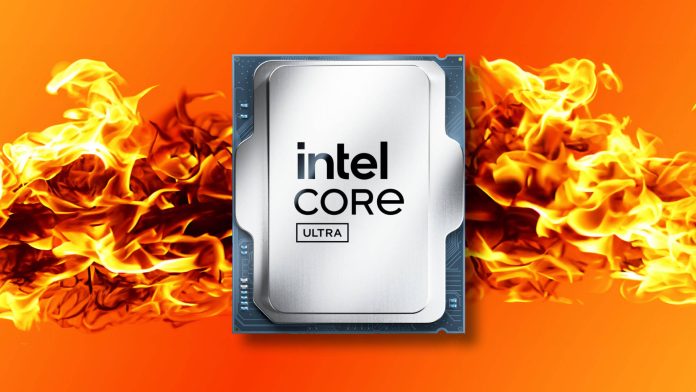As an Amazon Associate, we earn from qualifying purchases and other affiliate schemes. Learn more.

There’s serious trouble for Intel brewing, according to an industry analyst, who suggests that the beleaguered chipmaker has just 18 months before it will have to stop work on future in-house gaming CPU manufacturing. The only answer is to find a big external customer for its future 14A semiconductor manufacturing process, otherwise the jig is up.
Intel has already dipped its toes into the water when it comes to outsourcing, with some parts of its Arrow Lake CPU lineup already produced elsewhere. Should it close its own foundries, Intel will become reliant on firms like TSMC and Samsung to produce its next-gen gaming CPUs. The company is already under threat, with current gaming CPUs struggling to compete against AMD alternatives when it comes to gaming performance, as our best gaming CPU list shows.
A large number of Intel’s research and development is based in Oregon, and Stacy Rasgon, an industry analyst for Bernstein & Co, spoke to local newspaper Oregon Live about Intel’s woes. According to Rasgon, Intel’s recent warnings about Intel 14A have left the chipmaker at risk.
Rasgon believes that if it doesn’t “land a hero customer on 14A” within 18 months, the company is at serious risk of being in a “worst of both worlds” situation, producing its own less profitable chips and outsourcing its newer, better chips to outside companies with much reduced profit margins.
That isn’t likely to be a sentiment that Intel CEO Lip-Bu Tan would disagree with. In comments made just this week, Tan said that, for future in-house gaming CPU production to succeed at Intel, the company needs a “significant external customer” in place. While it isn’t impossible for Intel to succeed if it relied on third-party foundries, its dominant position as an elite CPU manufacturer would be under significant threat.
However, Rasgon believes that by even mentioning this risk, Intel is likely putting external customers off, suggesting that “the disclosure itself may make it more difficult to attract major customers if they are not convinced of Intel’s commitment.”
It’s fair to say that a diminished Intel, forced to close its foundries and outsource development, would be a far cry from its position a decade or two ago when it was the preeminent and undisputed market leader in CPU manufacturing and design. It remains to be seen if Intel has created a self-fulfilling prophecy for its future, but we’ll be hoping it can turn its fortunes around, as continued competition is crucial.
You can take a look at our Intel Core Ultra 265K review next to see why Intel’s most recent lineup wasn’t a big-hitting success among gamers when it launched. Of course, you don’t have to choose the CPU yourself if you go pre-built for your next gaming rig, and our best gaming PC guide has a decent selection of options from both major players to help you choose from.
You can also follow us on Google News for daily PC games news, reviews, and guides. We also have a vibrant community Discord server, where you can chat about this story with members of the team and fellow readers.
